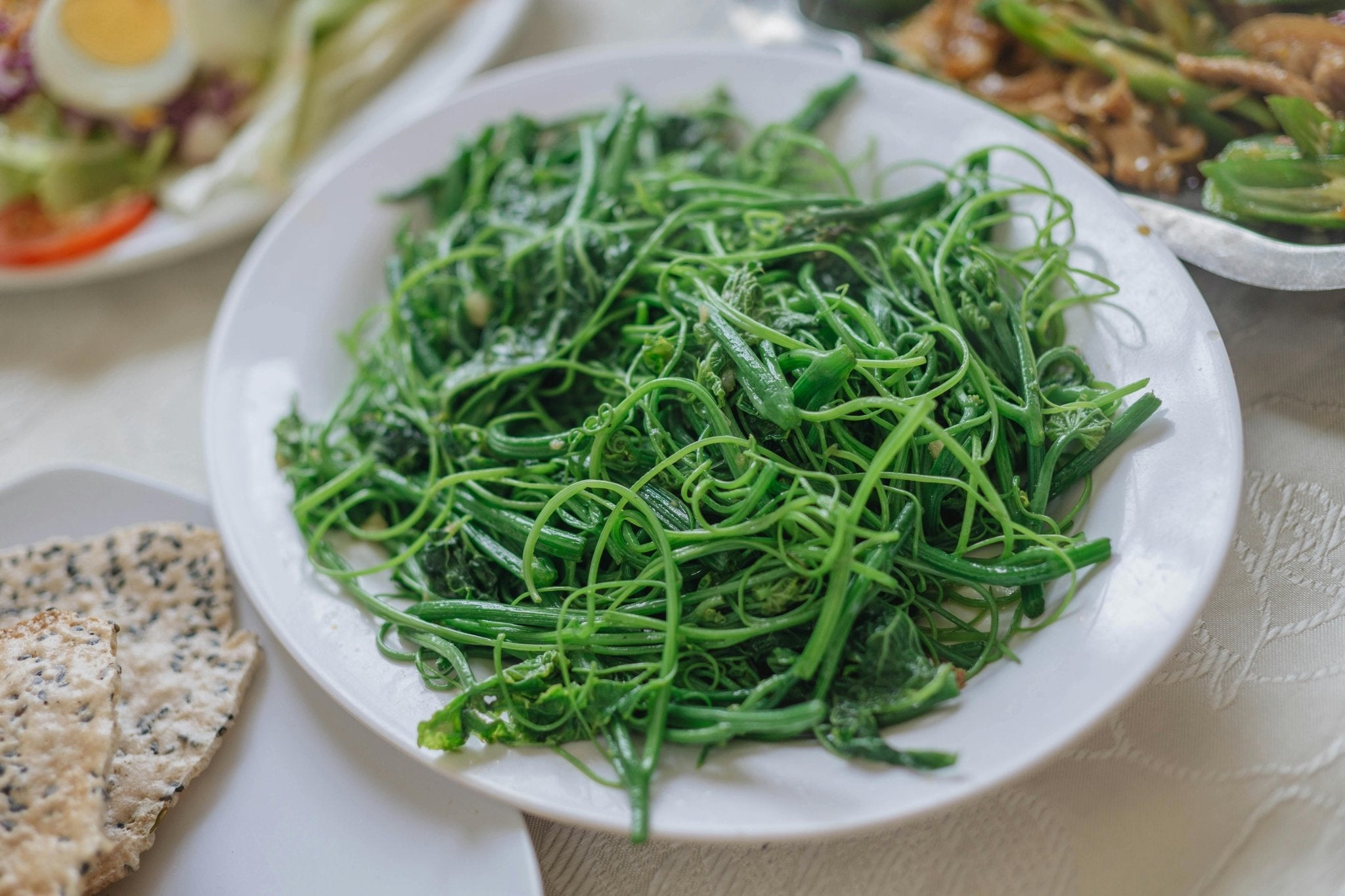Dietary fiber, found in plant-based foods, is essential for maintaining optimal health. Recent research underscores its role in preventing chronic diseases and promoting overall well-being and there’s more than a handful of reasons to strive for optimal servings each day. When it comes to health, we often hear about protein, vitamins, and healthy fats, but fiber is the underrated superstar of nutrition. Whether you're aiming for better digestion, more energy, or long-term wellness, fiber plays a key role.
Here's why adding more to your plate is a game-changer:
1. Enhances Digestive Health + Feeds the Gut Microbiome
Fiber adds bulk to the stool and facilitates regular bowel movements, reducing the risk of constipation. A study published in Gastroenterology Journal found that diets rich in fiber, such as the Mediterranean or plant-based diets, significantly lower the risk of chronic constipation. Dietary fiber increases stool bulk and speeds up transit time through the colon, which helps prevent constipation and promotes regularity. Insoluble fiber, found in whole grains and vegetables, adds structure to stools, while soluble fiber, found in oats and legumes, forms a gel that helps soften them. Adequate fiber intake is linked to reduced incidence of hemorrhoids, diverticulosis, and colorectal cancer.
Prebiotic fibers (like inulin and resistant starch) serve as fuel for beneficial gut bacteria, promoting a healthy and diverse microbiome. As fiber ferments in the colon, it produces short-chain fatty acids (SCFAs) like butyrate, which have anti-inflammatory properties and support immune function.
2. Supports Heart Health
High fiber intake is linked to a reduced risk of cardiovascular diseases. A review in Clinical Nutrition concluded that increased dietary fiber consumption is associated with lower risks of heart disease and stroke. Soluble fiber binds with bile acids and cholesterol in the digestive tract, helping lower LDL (“bad”) cholesterol levels. Numerous epidemiological studies have shown that people who consume more fiber—especially from whole grains—have lower rates of coronary heart disease, hypertension, and stroke. Fiber also improves endothelial function and lowers markers of inflammation.
3. Regulates Blood Sugar Levels
Soluble fiber slows digestion and glucose absorption, which helps stabilize blood sugar levels. This leads to lower postprandial (after-meal) glucose spikes and improves insulin sensitivity. Long-term, high fiber diets have been associated with reduced risk of developing type 2 diabetes, especially when the fiber comes from grains and legumes.
4. Aids in Weight Management
Fiber-rich foods promote satiety, reducing overall calorie intake. A study in the Journal of Nutrition found that increased fiber consumption predicts weight loss and better adherence to dietary programs. High-fiber foods are more filling and take longer to chew and digest, which increases satiety and reduces overall calorie intake. Fiber also impacts appetite-regulating hormones such as ghrelin and peptide YY. Multiple studies show that higher fiber intake is associated with lower body weight and reduced risk of obesity.
5. Reduces Inflammation
Fiber-rich diets are associated with lower systemic inflammation, likely through their effects on gut health and microbiota. SCFAs produced from fiber fermentation modulate the immune system and reduce inflammatory markers like C-reactive protein (CRP). Chronic inflammation plays a role in conditions such as cardiovascular disease, diabetes, and certain cancers.
🚨 Recommended Daily Fiber Intake 🚨
Women should aim for 25 grams whereas men should shoot for 38 grams. Despite these recommendations, most individuals consume only about half the suggested amount. Incorporating a variety of fiber-rich foods like fruits, vegetables, legumes, and whole grains can help bridge the gap.
Get Started: Top Fiber-Rich Foods
-
Legumes: Lentils, black beans, chickpeas, soybeans, etc.
-
Fruits: Raspberries, apples, kiwi (with the skin! P.S. this single fruit alone can CREATE healthy gut microbiome equilibrium). 🥝
-
Vegetables: Brussels sprouts, lettuce, carrots, kale, etc.
-
Whole Grains: Oats, quinoa, buckwheat, etc.
-
Seeds: Chia seeds, flaxseeds, hemp seeds, etc.
Embracing a fiber-rich diet is a simple yet effective strategy to enhance health and prevent disease. Start by gradually increasing your fiber intake and enjoy the myriad benefits it offers.

